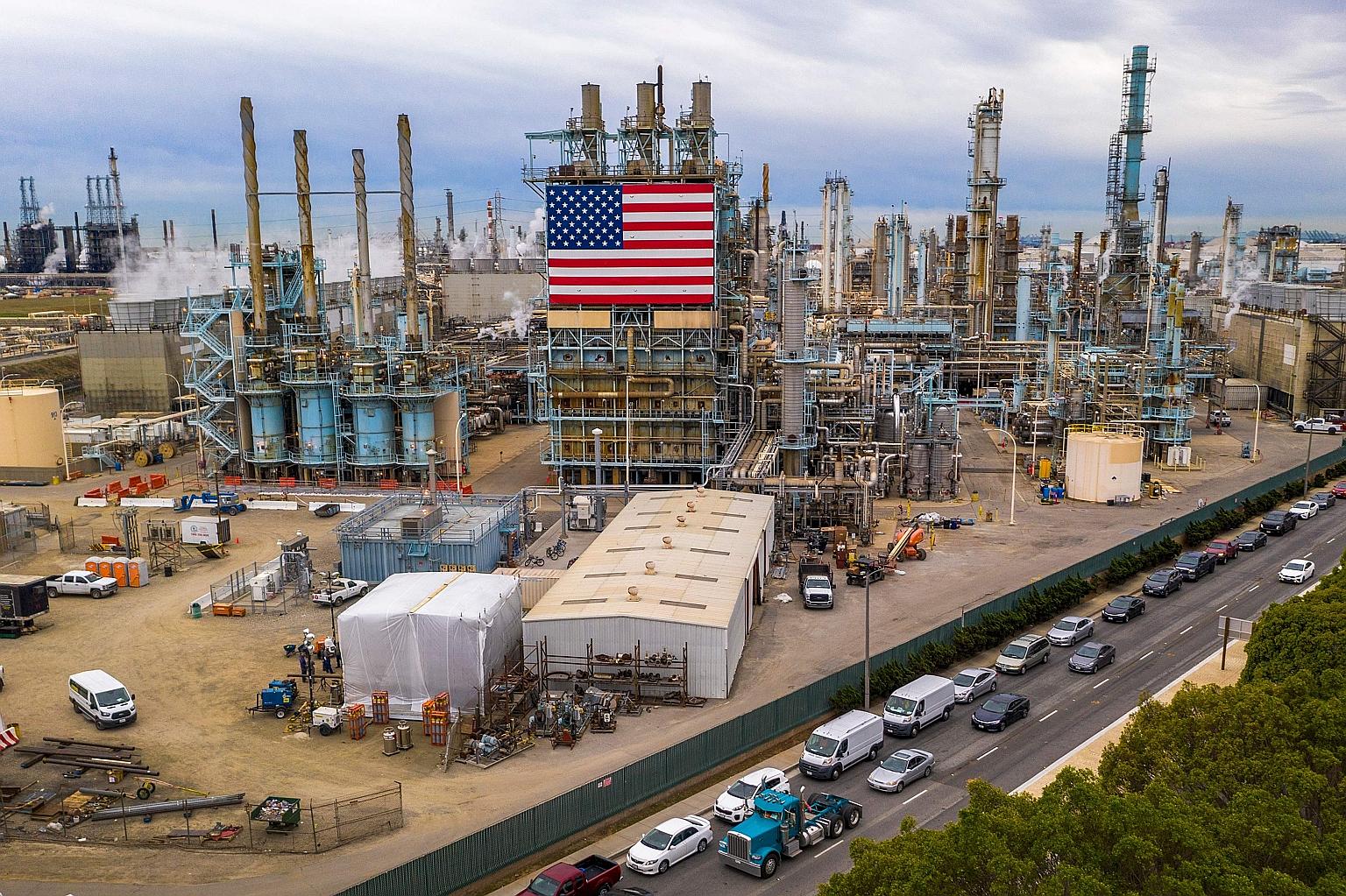No plan for US oil cuts as Trump declares 'it's a free market'
Sign up now: Get ST's newsletters delivered to your inbox

The Marathon Refinery in Carson, California. Talks between US President Trump and titans of America's oil industry on Friday ended without any public declaration of a plan to curtail domestic output.
PHOTO: AGENCE FRANCE-PRESSE
Follow topic:
WASHINGTON • Last Thursday, US President Donald Trump sent oil prices rallying on the prospect of an unprecedented, US-backed deal to cut global crude production.
The next day, he walked out of a meeting with the titans of America's oil industry without any public declaration of a plan to curtail domestic output, saying it is a free market and up to Saudi Arabia and Russia to solve their price war that sent crude crashing.
His remarks call into question Mr Trump's ability to broker a truce between the world's two biggest crude exporters at a time when the coronavirus pandemic is destroying demand and threatening the shale industry's survival.
The President said that tariffs on oil imports could be imposed, though he is not planning to do that at the moment.
While both Saudi Arabia and Russia have expressed openness to coordinated production cuts - and Mr Trump said a deal between the two nations will come soon - it is unclear that can be achieved without the United States and other nations also taking part.
Asked whether America would join in, Mr Trump was evasive.
"It's a free market. We'll figure it out," he told reporters in Washington after the gathering with the heads of Exxon Mobil, Chevron and other major producers.
"Ultimately the marketplace will take care of it."
Left to its own devices, though, the market is poised to collapse further as the Covid-19 crisis could slash global crude demand by almost a third.
Hundreds of thousands of industry jobs are hanging in the balance, with about US$15 billion (S$21.6 billion) worth of investments wiped out from the budgets of shale explorers and many of them on the brink of bankruptcy.
So now all eyes turn to the Organisation of the Petroleum Exporting Countries, which is convening on Thursday in a virtual meeting with members, allies and guests including the oil-rich Canadian province of Alberta, in a bid to address crude's meltdown.
Russian President Vladimir Putin said his country is prepared to take part in deep cuts in oil production together with Saudi Arabia and other major producers.
It is up to the meeting chaired by Saudi Arabia to deliver the 10 million barrels a day promised by Mr Trump, without US participation, said Mr Roger Diwan, oil analyst at IHS Markit. "That's a very high bar to achieve."
Mr Trump vowed to support the US oil industry with measures that include filling the country's Strategic Petroleum Reserve to ease the glut as storage tanks in distribution hubs are almost filled to the brim.
"We'll get our energy back," he said during a portion of last Friday's meeting that was open to reporters. "I'm with you 1,000 per cent. It's a great business, it's a very vital business and honestly, you've been very fair. You've kept energy prices reasonable for a long period of time."
The meeting included chief executive officers Darren Woods of Exxon, Vicki Hollub of Occidental Petroleum and Kelcy Warren of Energy Transfer. Mr Greg Garland, chairman and CEO of Phillips 66, and Mr Mike Wirth, chairman and CEO of Chevron, also attended.
The executives did not ask for a bailout, according to Mr Trump. They did discuss tariffs on foreign oil, which "are a way of evening the score", he said.
"Am I thinking about imposing it as of this moment? No, but if we are not treated fairly, it's certainly a tool in the toolbox."
ClearView Energy Partners analysts said the President's comments last Friday indicate that the United States is likely to prod the Russia-Saudi talks along not by expressing a willingness to cut US production but rather a willingness to impose tariffs.
Restricting imports with a tariff, an idea championed by Oklahoma oil tycoon Harold Hamm, a Trump confidant, is one of the most contentious matters, with refiners and north-east US gas producers firmly opposed.
BLOOMBERG

